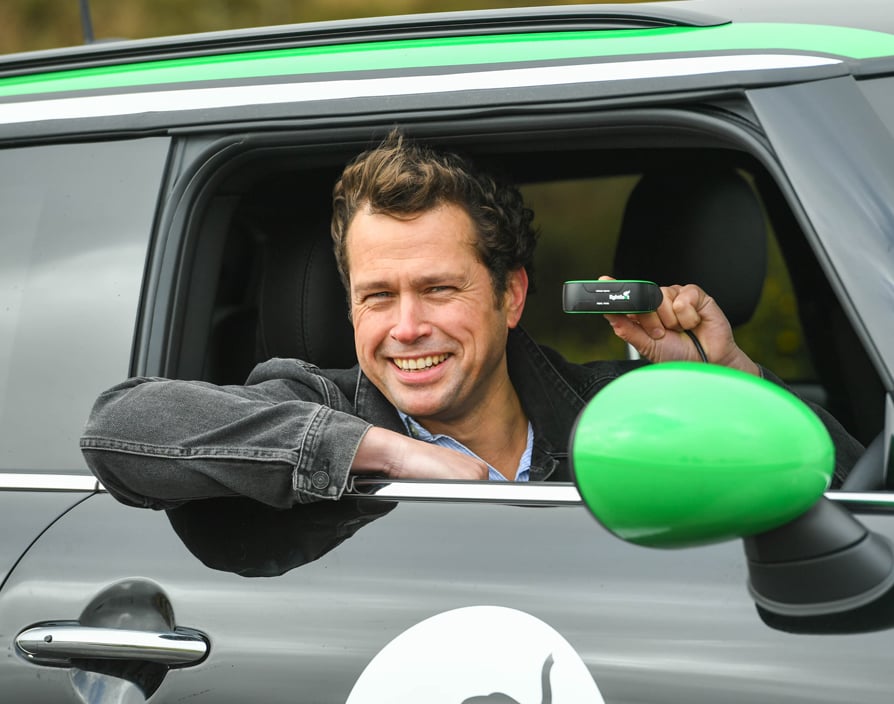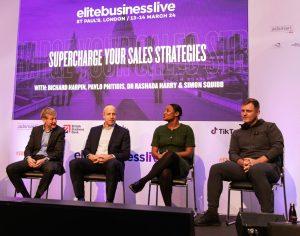Many entrepreneurs go through periods where they must hold on tight to every penny. But Mark Roberts, CEO of Lightfoot, the startup using tech to make people better drivers, went further than most when he spent months sleeping on the office floor. “It came down to reducing costs wherever possible,” he remembers. “I was commuting from London down to Devon each week and hotels were a luxury I couldn’t justify. It wasn’t glamorous but if that was what helped get Lightfoot to where it is today then I have no regrets. I just hope I don’t have to do it again.”
However, things got scary one night when he returned home to the office to discover someone had broken in. “I was out for the evening and came back to an open door and a trail of muddy footprints that went from door to door – by way of my pillow,” Roberts says. Luckily nothing important had been stolen and he never bumped into the unwelcome visitor again. “My best guess is that our intruder was more curious than criminal but it didn’t help me sleep better at the time,” Roberts admits.
Despite the experience, he’s adamant it was worth it to make Lightfoot the promising venture it is today. That journey all started back in 2011 when he had an idea with another company he’d started – Ashwoods Electric Motors. “We had designed a hybrid engine for vans but despite having the best-in-class technology, the vehicles were not performing as efficiently as they should have outside the lab,” he says. “It didn’t make sense at first.” But the mist began to lift once they looked a bit further. The driver was the problem. “We found that on average, bad driving – harsh acceleration and braking, choosing the wrong gear, aggressive behaviour – leads to a 15-20% increase in fuel consumption,” Roberts explains. “Just like that, the need for Lightfoot became apparent. If the driver determines the baseline performance of the vehicle, it doesn’t matter how clean it was designed to be.” The result of this revelation was that Roberts set out to create a system that encourages drivers to improve their driving in real time by using data – what he describes as a “Fitbit for cars.”
Recognising the idea was equally about automotive engineering as it was about psychology, the founder asked the University of Bath to contribute its expertise in what truly makes drivers tick. “From there it was about blending this knowledge with the technological solutions we knew we could deliver,” Roberts says. Doing that created a system that analyses the vehicle’s engine in real time and offers drivers both visual and auditory feedback on how to improve. “We call that driving in the sweet spot – it gets you closer to the performance your car was engineered to deliver,” Roberts says.
And the results have been astonishing. By using the system, drivers can reduce their harmful emissions by between 15% and 20%. Moreover, Roberts also claims using the system can see the risk of accidents drop by 60%. “The best ideas are simple and rewarding better drivers is the simplest one going,” he says. “It’s hard to believe that we made it to the dawn of electric and autonomous vehicles before finding a way to make being a good driver genuinely valuable but we are happy to be leading the charge.”
However, Lightfoot wouldn’t have been able to lead anything if an angel investor hadn’t injected £3m into the company in 2011. “[He’s] a high net worth individual we had got to know over the years through our various automotive projects,” Roberts says. “He liked what we were doing and [was] keen to get involved and support the business.” Additionally, the angel investor also supported the team during their first years and Roberts says he has “gradually and graciously taken a step back as we brought in other funders.”
The investment allowed the founders to develop the technology and to launch in 2013. “We’ve been operating in the fleet market now for five years and have signed over 150 clients, including Boots, Alliance Healthcare and Virgin Media,” says Roberts. The money also allowed Lightfoot to ensure drivers stay motivated by developing a rewards platform. “Drivers get to compete for bragging rights in their company and private leagues, can win big in weekly prize competitions and get access to 100 plus discounts for their shopping, dining and days out,” he says.
In April 2018 Lightfoot filled out its coffers even more when Innovate UK, the body supporting British businesses, granted the company a £1m investment. “The capital has come at a pivotal moment as we are gearing up to launch Lightfoot to the consumer market,” says Roberts. With the money, the startup has been able to enhance the technology and the CEO is bullish about the new road the business is going down. “[We’re] now ready to launch to the consumer market,” the founder muses. “We’ll be rolling it out regionally, starting in Exeter where Lightfoot was born, then across the South West before going national by the end of the year.” When it comes to scaling Lightfoot, Roberts clearly aims to keep flooring it.
![]()
Share via:


















































